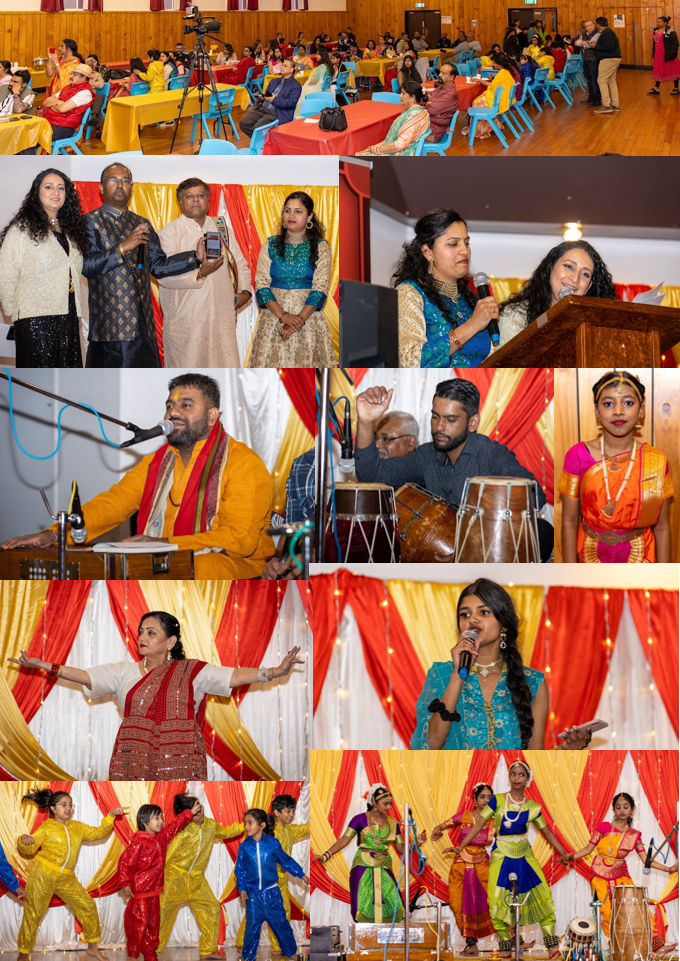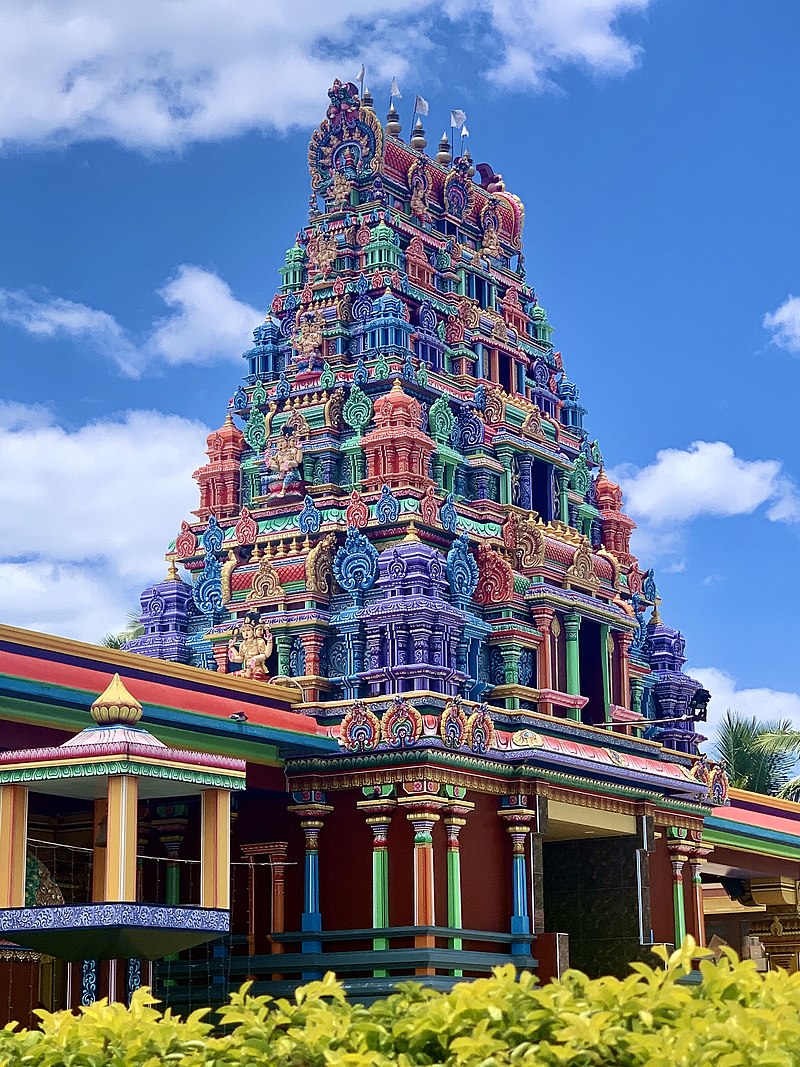Identity, Language and Culture of a Fiji Indian Hindu Sanatani Girmitiya Descendent
Many identities exist in the Fiji Indian community. I (Praneil) will talk about myself, which is what the majority identifies as. My Identity is Fiji Indian Hindu Sanatani. New Zealander can be added to it. However, people move so much these days that the country of residence is not as important to the identity.
My ancestors were torn from their home state of Uttar Pradesh and Bihar, from their Bharat Mata - India during Fiji Girmit also known as Indian Slavery by the Colonial British Government. I am a direct descendant of the Fiji Girmitiyas. I love Hindi and Fiji Hindi. Our biggest festival is Diwali. I cannot live without Indian food e.g. dhal bhaat, roti curry. Hindi movies are hugely popular including cultural classics such as Ramayan and Mahabhaarat. We should focus on our Indian, Hindu, Sanatan culture of mantra, kirtan and bhajan to improve our mental and physical health.
The greatest challenge for my people is substance abuse. More specifically, the abuse of kava, alcohol, smoking, shisha, vaping, and drugs. These substances harm our mental and physical health. Other social issues such as suicide, poverty, and domestic violence are exacerbated by substance abuse.
The term Fijian Indian is used outside of Fiji to specify origin, the same as people originating from other regions of India e.g. Punjab, Gujarat, Mumbai, Delhi etc. The vast majority of Fiji Indian people, like me, have Indian or Sanskrit names which means that Indian culture is their main culture. The spelling may be different due to various reasons. They have Hanuman ji flags, thaans or mandirs at their homes. They do pooja, go to mandir and celebrate Indian festivals. The day the vast majority of Fiji Indian people start naming their children non-Indian names, that's the day their main identity will stop being Indian. That day will not come any time soon. You can't change the way you look. The vast majority of Girmitiya descendants look Indian. Although, India does contain many different ethnicities - many different looks. Like our Girmitiya ancestors, we are Indian by culture, appearance, if not by nationality. Some ask which box to tick in ethnicity questions - well here in New Zealand, all of the forms which I have seen allow multiple ticks - tick as many as you wish or identify as.

We should teach Hindi and Fiji Hindi to our children, not either or. My kids understand Hindi and speak Fiji Hindi. Formal Hindi speakers from Girmitiya countries are able to talk to each other. E.g. I once interviewed a person from Mauritius and we both spoke Hindi. Fiji Hindi has 2 main sub dialects which are the majority spoken Viti Levu and the other Vanua Levu Hindi. Fiji Hindi is a dialect of Hindi with some words borrowed from other Hindi dialects such as Awadhi (The language of Shri Ram's Ayodhya), Bhojpuri and other surrounding areas which of course originates from the mother of all languages - Sanskrit! E.g. The word Konchi is from Maithili, which is the language of the Mithila region of Mata Sita. Hindi evolved in Fiji to form what is now called Fiji Hindi. The grammar of Fiji is slightly different to Hindi, otherwise, they are very similar. I have been in conversations where Fiji Hindi and Hindi are being spoken by different people and they all are able to converse and understand each other. Even Fiji Hindi progressed from its initial version which was the Hindi which is found in Pandit Totaram ji's book which stopped Girmit or Indian Slavery - Fiji Dweep Me Mere Ikkees Varsh - My 21 years in the Fiji Islands to the Fiji Hindi being spoken today. There are of course other variants which exist in rural Fiji and Urban Fiji. In Fiji and Fiji Indian communities overseas, Fiji Hindi is spoken at home and informally but Hindi is spoken when addressing formal gatherings e.g. Ramayan events, writing and teaching in schools.
Indians and the Indian diaspora are diverse but also share a common culture. If someone does say to you that you are not a real Indian the same will happen to their children born in New Zealand. They will be New Zealand Indian so this argument does not hold any weight. If someone says that Fijian-Indians are inferior, that is not true. To the contrary I have many great friends from India with whom I work in the community e.g. Indian festivals. When someone asks you where you are from then the answer is Fiji, but our ancestors were from India who suffered during the colonial period. They were part of the nearly two million Indians abused and displaced globally to places such as the Caribbean, Mauritius, South Africa and a lot of other countries as well.
Some use the Fiji Constitution to say that they are Fijians - full stop. Well, it is an imposed constitution, it was not established by consulting the public and it was not set up by a democratically elected Government. In fact, this constitution acknowledges the various ethnic groups such as Indians, Girmitiya Indians, Asian, and native Fijian (iTaukei) among others. Therefore, this Constitution should not be used by people to say that our Indian heritage is irrelevant. It also has a Hindi translation anyway - in the Devanagari script.

Girmit sangeet in all Girmitiya countries is in Hindi and they all almost sound the same e.g. Faag, Kirtan, Bhajan, Lokgeet in Mauritius, Suriname and Fiji. I have been deeply connected to my Indian culture since childhood through activities such as Pooja, Hindi education, Kirtan, Bhajan, Faag, Lokgeet, Bhagwat Geeta and the Ram Charit Maanas. The Ramayan mandlis played a huge part in this, not forgetting the community leaders' sacrifices to keep such organizations running despite destabilization efforts of some. Indian musical instruments like the harmonium and dholak are monumental in keeping our culture alive. We treat music and knowledge like Ma Saraswati herself, we respect and worship her.
The Indian cuisine in Fiji came from India. It has incorporated some fruits and vegetables found in Fiji well e.g. breadfruit or belfort. India till today supplies vitals such as aata wheat and masala spices. Everything Indians hold dear comes from India e.g. cultural food, clothes, musical instruments, books etc. We have strong links to our Bhaarat Mata - Mother India, Hindustan. It is the land of our ancestors.
Devanagari script is the only way to accurately write Hindi and Fiji Hindi. Roman script has issues representing sounds which do not exist in English. e.g. ladka or larka do not accurately represent the word 'boy'. Many Roman standards to write Hindi exist already. This Wikipedia article lists a lot of the standards: Devanagari transliteration. This can be used to write Fiji Hindi, a new system is not required. Even when using such existing standards, you will have to map to the Devanagari sound anyway. I.e. you will have to know which Hindi or Devanagari script sound is represented by the Roman character. So it is best to directly learn the Devanagari script or Hindi. At the very least, learn the characters for sounds which are not in English. Hindi and Bhojpuri dictionaries are available online - we should use them to learn our language, not to reinvent the wheel in attempting to create separate writing systems.
We should all use all our diversities as Indians to spread the wonderful Indian culture just as our Girmitiya ancestors did!

